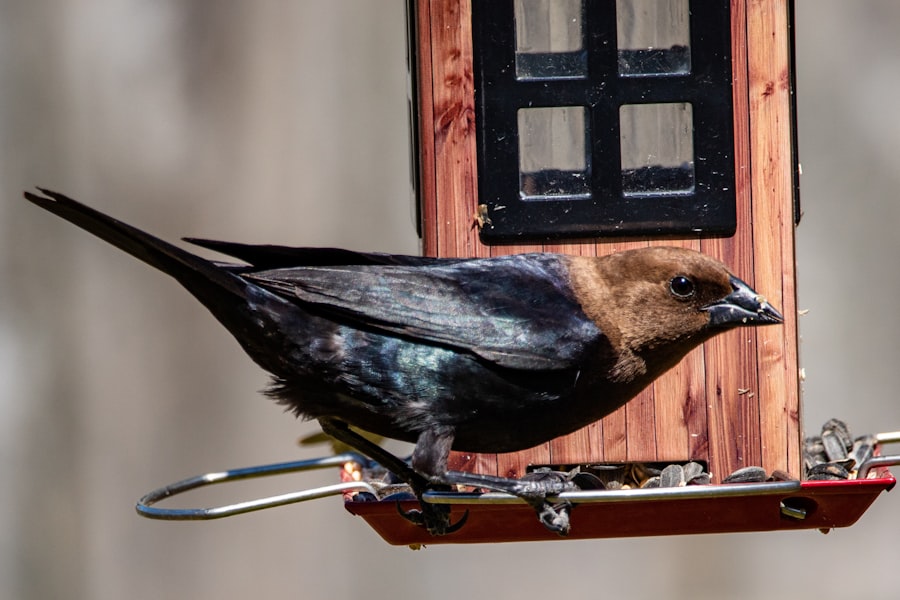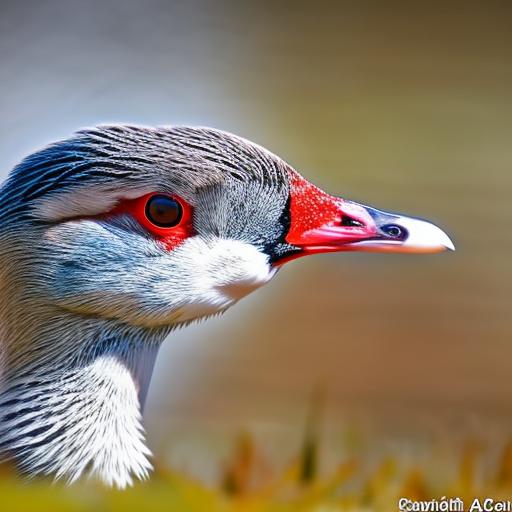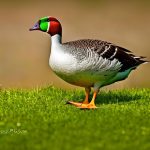Keeping geese as pets in Australia is becoming increasingly popular among animal lovers. Geese are known for their intelligence, loyalty, and entertaining personalities, making them great companions for both individuals and families. In this article, we will explore the various aspects of keeping geese as pets in Australia, including choosing the right breed, setting up a suitable living environment, feeding and caring for them, training and building a bond with them, health concerns and common illnesses, breeding and raising goslings, legal requirements, and the benefits of keeping geese as pets for your household and community.
Key Takeaways
- Keeping geese as pets is becoming increasingly popular in Australia.
- Choosing the right breed of geese is important for their temperament and suitability to your living environment.
- Geese require a suitable living environment with access to water, shelter, and space to roam.
- Feeding and caring for geese involves providing a balanced diet and regular health checks.
- Building a bond with your geese through training and socialization can lead to a rewarding and enjoyable experience.
Choosing the right breed of geese for your home
There are several popular breeds of geese in Australia that are suitable for keeping as pets. Some of these breeds include Toulouse, Embden, Chinese, and Sebastopol geese. Each breed has its own unique characteristics and traits that may make them more suitable for certain households. When choosing a breed of geese, it is important to consider factors such as size, temperament, noise level, and egg-laying capabilities.
Toulouse geese are known for their large size and calm temperament. They are often chosen as pets because of their gentle nature and their ability to bond with their owners. Embden geese are also large in size but tend to be more active and vocal compared to Toulouse geese. Chinese geese are smaller in size and known for their alertness and protective nature. Sebastopol geese have unique curly feathers that make them visually striking but require extra care in grooming.
Setting up a suitable living environment for your geese
Geese require a suitable living environment that provides them with shelter, outdoor space, and access to water sources. When it comes to housing requirements, geese need a secure and spacious shelter that protects them from extreme weather conditions and predators. The shelter should have proper ventilation and be easy to clean. It is also important to provide geese with a comfortable nesting area where they can lay their eggs.
In addition to a shelter, geese also need access to outdoor space for exercise and grazing. A fenced area is essential to keep geese safe and prevent them from wandering off. The fence should be at least three feet high and buried at least six inches into the ground to prevent geese from escaping or predators from entering. Geese also require access to water sources for swimming and drinking. A small pond or pool is ideal for geese to engage in their natural behavior and maintain good hygiene.
Feeding and caring for your geese
Geese have specific dietary needs that must be met in order for them to thrive. Their diet should consist of a balanced mix of grains, greens, and protein. Commercially available waterfowl feed can be supplemented with fresh vegetables, fruits, and grass. It is important to provide geese with clean and fresh water at all times.
Grooming and hygiene are also important aspects of caring for geese. Geese have a natural oil gland near their tail that they use to preen their feathers. However, this oil gland can become blocked if the goose is not able to swim regularly. Regular access to water sources is essential for geese to maintain good feather health. Additionally, it is important to regularly check the feet of geese for any signs of injury or infection.
Regular health check-ups are crucial for ensuring the well-being of your geese. Geese should be vaccinated against common diseases and parasites. It is also important to monitor their weight, behavior, and overall condition on a regular basis. If you notice any signs of illness or abnormal behavior, it is important to consult a veterinarian who specializes in avian care.
Training your geese and building a bond with them
Geese are highly intelligent animals that can be trained to follow basic commands and develop a bond with their owners. Training geese requires patience, consistency, and positive reinforcement. Basic training techniques such as target training and clicker training can be used to teach geese to respond to commands and perform simple tricks.
Building trust and communication with your geese is essential for developing a strong bond. Spending quality time with your geese, talking to them, and offering treats can help build trust and strengthen the bond between you and your geese. It is important to remember that geese are social animals and thrive on companionship, so it is recommended to keep at least two geese together.
Fun activities such as taking your geese for walks, playing games, or engaging in interactive toys can also help strengthen the bond between you and your geese. Geese are naturally curious animals and enjoy exploring their surroundings, so providing them with opportunities for mental stimulation and physical exercise is important for their overall well-being.
Health concerns and common illnesses in geese

Like any other animal, geese are susceptible to certain health concerns and illnesses. It is important for pet owners to be aware of the signs of illness in geese and take appropriate measures to prevent and treat these conditions.
Signs of illness in geese may include loss of appetite, lethargy, difficulty breathing, diarrhea, abnormal feather growth or loss, and changes in behavior. If you notice any of these signs, it is important to consult a veterinarian who specializes in avian care as soon as possible.
Common health issues in geese include respiratory infections, parasites (such as worms or mites), foot problems (such as bumblefoot), and egg-binding (a condition where a female goose is unable to lay her eggs). Preventative measures such as regular vaccinations, proper nutrition, good hygiene practices, and regular health check-ups can help reduce the risk of these health issues.
Breeding and raising goslings
Breeding geese can be a rewarding experience for pet owners. Geese have a breeding season that typically occurs in the spring. During this time, male geese (known as ganders) will display courtship behaviors to attract female geese (known as geese). Once a pair has formed, they will mate and the female goose will lay eggs.
Incubation and hatching of goose eggs typically takes around 28-30 days. During this time, it is important to provide the female goose with a suitable nesting area that is quiet and secure. Once the goslings hatch, they should be kept with their parents for at least the first few weeks to ensure proper bonding and care.
Caring for goslings involves providing them with a suitable brooder area that is warm, dry, and safe. Goslings require a specialized diet that is high in protein and nutrients to support their growth and development. It is important to monitor their health and behavior closely during this time and provide any necessary veterinary care.
Legal requirements for keeping geese as pets in Australia
Before keeping geese as pets in Australia, it is important to be aware of the legal requirements and regulations that govern the ownership of these animals. In some states or territories, permits or licenses may be required to keep geese as pets. It is important to check with your local council or animal welfare authority to ensure compliance with these regulations.
In addition to permits or licenses, there may be specific local regulations that govern the keeping of geese as pets. These regulations may include restrictions on the number of geese allowed, fencing requirements, and noise control measures. It is important to familiarize yourself with these regulations and ensure that your living environment meets the necessary criteria.
Animal welfare laws also apply to the keeping of geese as pets in Australia. These laws are in place to ensure the well-being and humane treatment of animals. It is important to provide geese with a suitable living environment, proper nutrition, veterinary care, and protection from harm.
Benefits of keeping geese as pets for your household and community
Keeping geese as pets can bring numerous benefits to both your household and the community. Geese provide companionship and entertainment with their playful and curious nature. They can also serve as natural pest control by eating insects and weeds in your garden. Geese are known for their lawn maintenance abilities, as they graze on grass and help keep it trimmed.
Keeping geese as pets can also provide educational opportunities for children and adults alike. Observing the natural behaviors of geese, learning about their life cycle, and understanding their needs can help foster a sense of responsibility and empathy towards animals.
Conclusion and resources for further information on keeping geese as pets in Australia
In conclusion, keeping geese as pets in Australia can be a rewarding experience for animal lovers. Geese make great companions with their intelligence, loyalty, and entertaining personalities. By choosing the right breed, setting up a suitable living environment, feeding and caring for them, training and building a bond with them, being aware of health concerns, breeding and raising goslings responsibly, complying with legal requirements, and recognizing the benefits they bring to your household and community, you can ensure a fulfilling experience as a goose owner.
For further information on keeping geese as pets in Australia, there are several resources available. The Australian Poultry Association (APA) provides information on various poultry breeds, including geese. Local councils or animal welfare authorities can provide specific information on permits or licenses required for keeping geese as pets in your area. Additionally, consulting with a veterinarian who specializes in avian care can provide valuable guidance on the health and well-being of your geese.
If you’re considering keeping geese as pets in Australia, you may be interested in learning about how many eggs geese lay. Understanding their egg-laying habits can help you better prepare for their care and ensure a healthy environment for them. Poultry Wizard provides a helpful article on this topic, which you can read here. Additionally, if you’re also interested in keeping chickens alongside your geese, Poultry Wizard offers valuable insights on how to insulate a chicken coop to provide optimal comfort and protection for your feathered friends. Check out their article on this subject here.
FAQs
What are geese?
Geese are waterfowl birds that belong to the family Anatidae. They are known for their long necks, webbed feet, and distinctive honking sound.
Can geese be kept as pets in Australia?
Yes, geese can be kept as pets in Australia. However, it is important to check with your local council as some areas may have specific regulations regarding the keeping of geese.
What are the benefits of keeping geese as pets?
Geese can make great pets as they are social animals and can form strong bonds with their owners. They are also good at keeping lawns and gardens free of pests and can provide eggs and meat for consumption.
What do geese eat?
Geese are herbivores and primarily eat grass, weeds, and other vegetation. They can also be fed commercial poultry feed and occasional treats such as fruits and vegetables.
How much space do geese need?
Geese require a large outdoor space to roam and graze. A minimum of 10 square meters per bird is recommended, with access to a pond or other water source for swimming and bathing.
What kind of shelter do geese need?
Geese require a shelter that is dry, draft-free, and provides protection from the elements. A simple shed or coop with straw bedding is sufficient.
Do geese require any special care?
Geese require regular access to water for swimming and bathing, as well as regular grooming to prevent feather damage and matting. They also require regular veterinary care and vaccinations to prevent diseases such as avian influenza.
Meet Walter, the feathered-friend fanatic of Florida! Nestled in the sunshine state, Walter struts through life with his feathered companions, clucking his way to happiness. With a coop that’s fancier than a five-star hotel, he’s the Don Juan of the chicken world. When he’s not teaching his hens to do the cha-cha, you’ll find him in a heated debate with his prized rooster, Sir Clucks-a-Lot. Walter’s poultry passion is no yolk; he’s the sunny-side-up guy you never knew you needed in your flock of friends!







